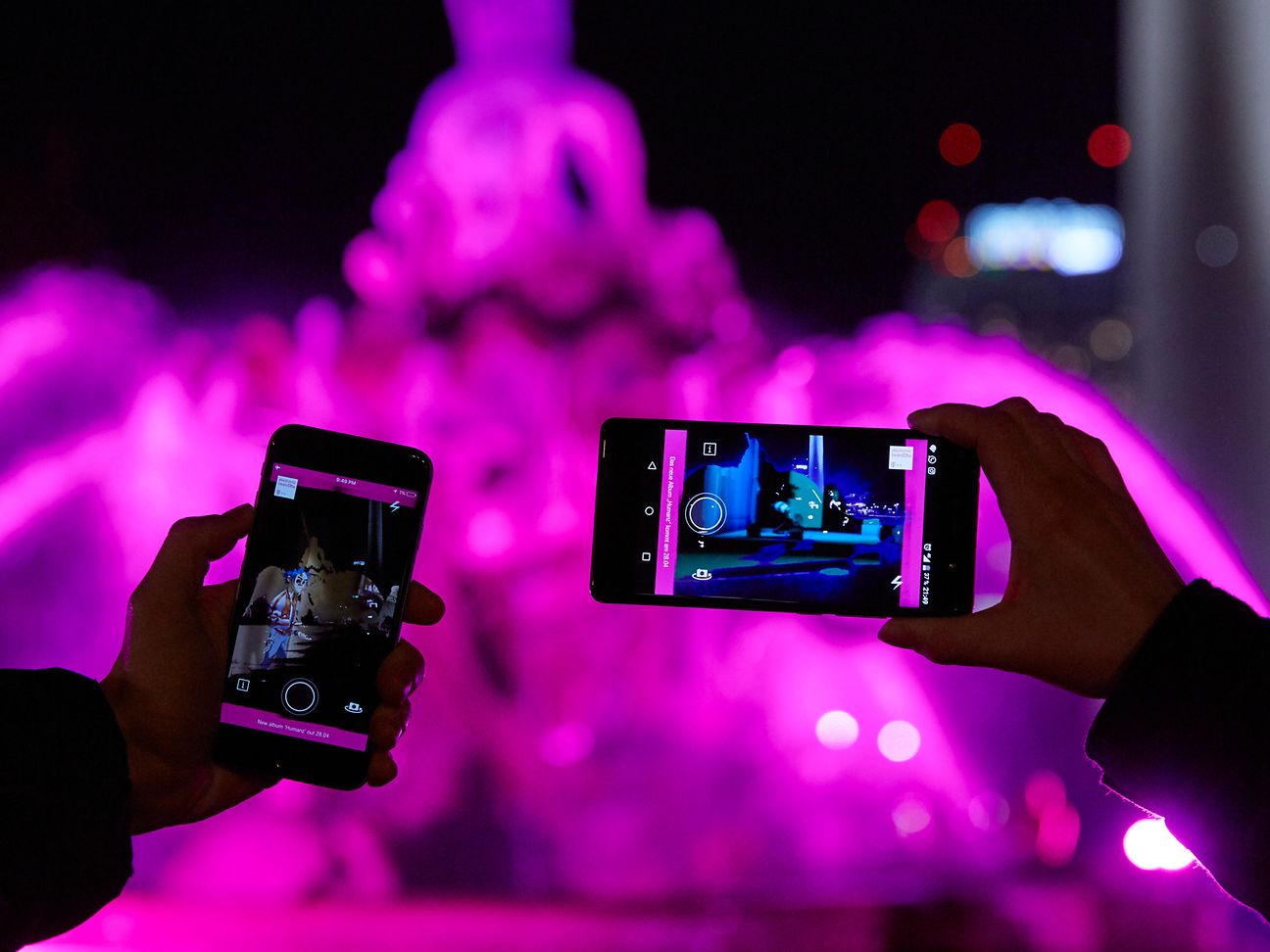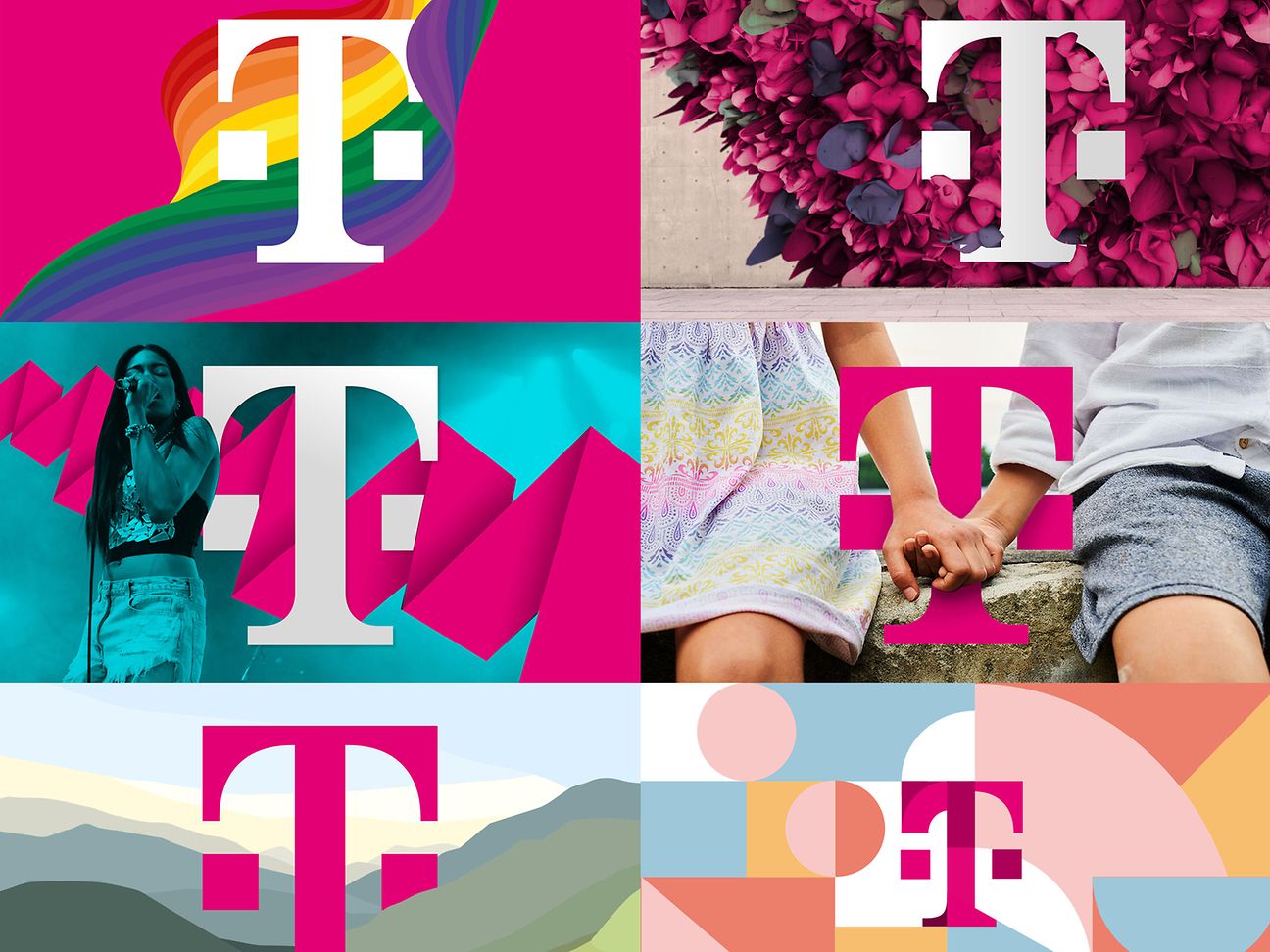

“Brand and sales are two sides of the same coin"
Deutsche Telekom is positioned very impressively in national and international brand rankings. The recent study „BrandZ Top 50 German Brands“ found it to be the second most valuable brand in Germany, with a brand value about 39.2 billion US dollar. In the following interview, Deutsche Telekom's Chief Brand Officer Hans-Christian Schwingen arranges the meaning of such results.
Mr. Schwingen, Deutsche Telekom's brand value has been growing since 2008. Ten years ago, it reached 8.9 billion U.S. dollars. Now, it is heading briskly toward the 40 billion US dollars mark. Are you satisfied with this development?
Hans-Christian Schwingen: Of course. It confirms that Deutsche Telekom is on the right track with its brand strategy. Rather than highlighting solutions to technical problems, the strategy emphasizes possibilities for human sharing – of experiences, knowledge and ideas. As we say, "Life is for sharing." Today, Deutsche Telekom is the most-valuable and best-known telecommunications brand, by far, in Germany and Europe. And in global brand rankings, we rank very near the top of all German companies. What's more – and this is especially gratifying – the most recent BrandZ brand rankings place us very highly within Germany itself. The study in question assesses brand value not solely on the basis of financial indicators, but also in terms of "brand contribution" as shown in representative surveys. Deutsche Telekom is the second most valuable brand after SAP. They are followed by major companies like BMW, Mercedes-Benz, DHL and Siemens.
What do these results mean for the company?
Hans-Christian Schwingen: When a brand is strong, it sends the message that the company behind it is strong as well, and successful in its market. A strong brand is also a sign of trust; our brand manifests the trust that customers and the general public place in us. What's more, our strong brand makes us attractive for business partners and investors.
How did the special strengths of the Deutsche Telekom brand come about?
Hans-Christian Schwingen: They came about in that in 2008, we re-conceived and re-established the brand, in terms of both content and strategy, and in light of the ways purchase-decision processes actually function. People make 95 percent of their decisions intuitively, with little or no conscious reflection. They make decisions in keeping with learned and adapted patterns that have developed in their minds. From the outset, we sought to answer the question of how a brand can win the trust of the customers.
But don't all brands influence customers' decisions, at least to some degree?
Hans-Christian Schwingen: In marketing their products and services, many companies emphasize explicit criteria such as functional value or price. Such a brand perspective is too narrow for mature markets, however. In positioning our brand, we also look carefully at our customers' implicit aims. Needless to say, customers want to buy good products at reasonable prices. But they also want their purchases to create meaning, in addition to providing the functional value they are seeking.
Can short-term sales success and long-term brand-building success go together, or are those two aims basically contradictory?
Hans-Christian Schwingen: Marketing is a business investment. In marketing, companies invest both in long-term customer satisfaction and in short-term sales success. This is not an either-or proposition, although goal-prioritization issues can be involved. And it's only natural for different areas of companies to have different perspectives on this task. Brisk sales and a strong brand are simply two sides of the same coin. They cannot really be considered separately. Consumers always view products, prices or service in the context of brands. While consumers may imagine that they make their purchase decisions only rationally, on the basis of hard facts, they also make them on the basis of what their unconscious minds tell them, and brands affect consumers' unconscious minds. In each instance of a purchase decision, the consumer's mind decides, within fractions of a second, whether the purchase would generate some form or sense of added value. In our case, this would mean deciding whether the product would help the consumer experience that "life is for sharing."
Your efforts in managing the company's brand development have made you a nominee for "Global Marketer of the Year" honors. You are on the shortlist for the award, which is bestowed by the World Federation of Advertisers.
Hans-Christian Schwingen: The nomination itself is a great honor for Deutsche Telekom as a whole. In the area we're talking about, we have to compete with global players such as Procter & Gamble, Mastercard, Unilever and Huawei. In the end, while someone's name always gets highlighted, that name always stands for the work of a great many people – that's how it works with awards in the worlds of finance, technology and marketing. In this case, the honor really belongs to all those in the company who live for – and keep working to enhance – the "T," day in and day out.



